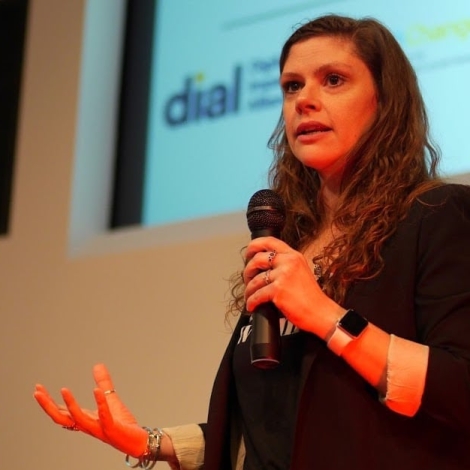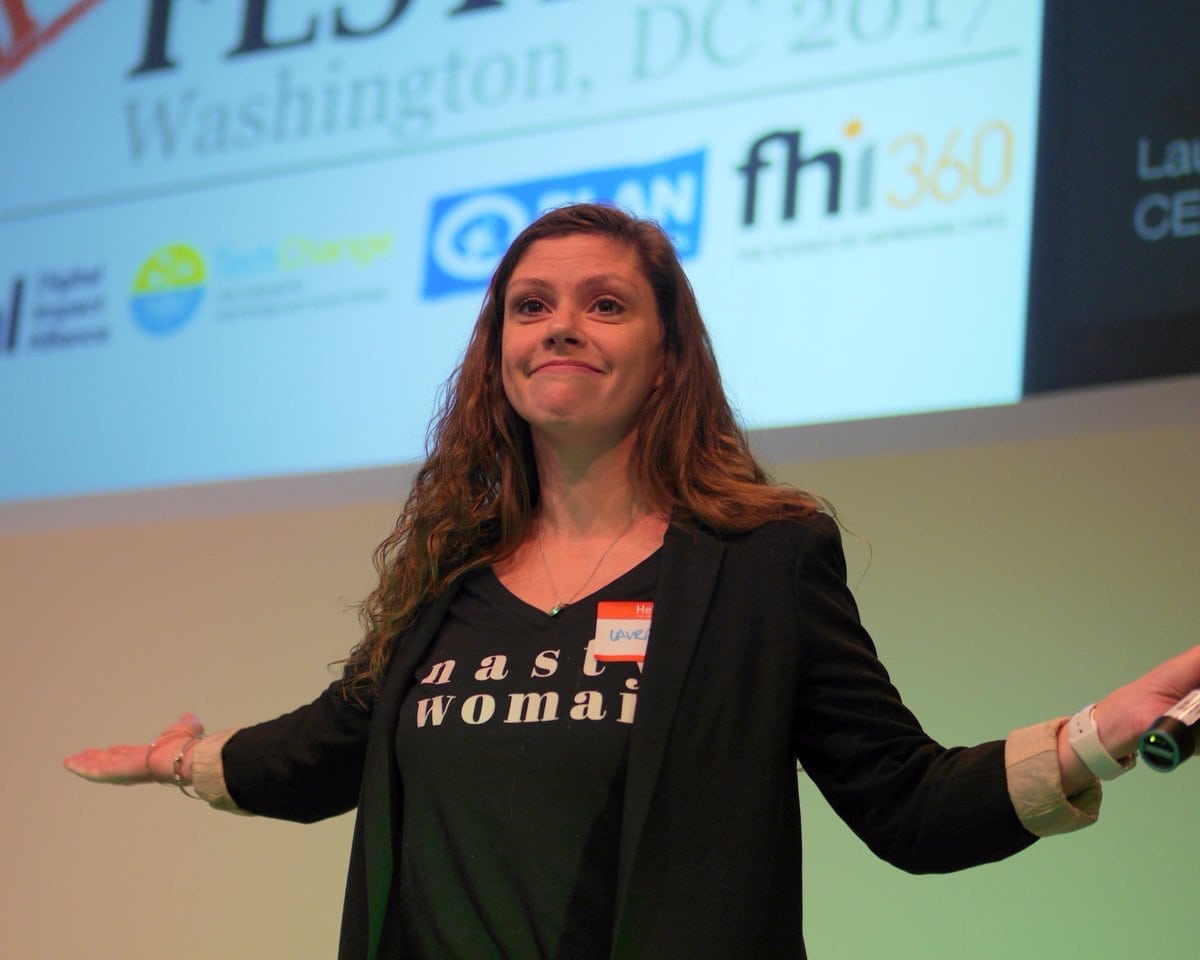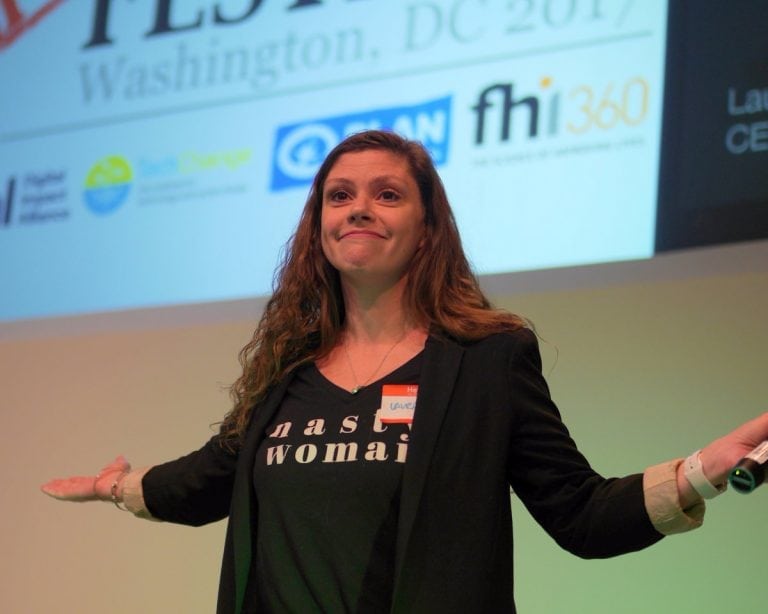Before the Social Impact Lab (SIMLab) closed its doors in January, CEO Laura Walker McDonald published an honest and revealing account of what happened. This is an adaptation of the second in Ms. McDonald’s two-part series. Please see Part I here.
What Happened, Part II: Five Operational Lessons Learned for Nonprofit CEOs
This post focuses on operational issues, and offers five unsolicited tips for nonprofit CEOs everywhere – particularly introverted, detail-oriented ones.
1. Hire the skills you don’t have, and delegate even where you’re strong.
As the leader of a small organization, you always need to be executing on three fronts, in addition to actually carrying out the core business: honing and maintaining your strategic vision; selling your core ‘thing’; and running a tight ship operationally. It’s critical to know yourself well enough to know which of those things you suck at, and find people to do those things for you.
I remember congratulating myself, in conversation with my husband one day, on the diversity of our team, and looking at Sean to see his mouth hanging open. ‘What are you talking about?’ he said. ‘Every single one of you is introverted!’
Yes, and I’m English. I come from a totally different business development environment. Looking back, I should have found a Washington insider to do that bit. But also, if your skill is in shaping projects, writing things and having ideas, then spend what time you can carve out of CEO-ing there and get someone else in for the rest.
But even for the things you’re good at, try and make enough money as soon as you can to ensure that you can remove yourself from direct responsibility for the day to day on almost all of it. Your job should be strategic vision first and foremost, and being a good figurehead and troubleshooter for the rest. A thoughtful and perceptive proof-reader of this post points out: most of the role is knowing when to hold money and when to invest it, and the details are where you build the team. This reminds me of this excellent piece. And I am not good at that. I’m a details person, and when I struggled in the early months and years to set out a focussed, clear vision, I could distract myself from it with administration and project delivery.
In particular, find a good COO as soon as you can. It has taken me most of my time at SIMLab (including the FrontlineSMS years) to find Kat, who aside from being one of the best humans there is, is the first COO we’ve ever had who could genuinely relieve me of the administrative burden of being the only one who understood our complex financial and legal structure. Being CEO means having to do everything that no-one else wants to do, and this means either handling admin yourself or managing the outsourcing of it. Whichever you choose, make it someone else’s job, and invest in their seniority and decision-making capacity.
2. Keep it simple.
SIMLab began in 2014 as a refreshed brand for a 501(c)(3) that had already been open for seven years, trying to do a very hard thing: run an open-source software platform. We had significant administrative complexity. Due to a combination of circumstance, error, and excitement, we had set up far too many companies, in three different countries. Don’t do this. Keep everything as lean and simple as you can, in the least complicated organizational form you can, in the fewest countries you can. If you have to operate elsewhere, work through partners or (genuine) consultancies.
3. Fundraise for reserves, don’t undersell yourself and charge late fees.
Grant administration finalizes late. Clients pay late. Projects get delayed. In this economic environment, you have to have some buffer against cashflow hiccups. Make it your mission, no matter how hard it is, to have a few months’ run rate in the bank. If you don’t have this, you are not safe, because you never know when the unthinkable might happen. Prioritize this and get your Board on it too – this is their job as much as yours. Use this target to motivate their giving and getting funds and connections.
And value your work from the beginning. If you have to give discounts to early clients, give them, record them, and write them off as you can. (Also: get a good accountant.)
4. Set your risk thresholds and do not deviate from them, whatever happens.
I did not do this, and we are in a hole as a result.
My suggestion (which I would also say applies beautifully, for those without strong convictions, to the question of whether or not to get an epidural during childbirth): in a world that went the way we want we would stay open, against the odds, and prevail against a universe that does not want your organization to exist. But. In the world in which we live, a number of things can go wrong, sometimes more than one at once. Too many to handle is simply too many to handle.
Make a list. It might go something like:
- Our income generation model isn’t performing as expected
- A tough funding environment
- We’re in debt
- We have a less than ideal balance of restricted to unrestricted funds
- We don’t have enough diversity among our donor base
etc etc – your challenges might be different. Each one of those is a nail in the coffin of your sustainability. How many can you handle at once? Set a number, say ‘4’. Your risk tolerance might be higher or lower than that. Then take one off because you’re emotionally attached to your business and you are not rational. Then take another one off for your family – see below.
Write that list down with your chosen number underneath it, sign the paper and don’t lose it. Look at it often. When you hit your number, you’ve reached your threshold. Make plans to close or do something radical – but before you contemplate an outrageous pivot or ambitious fundraising plan, read the bit about families, below.
5. Trust no-one.
This is about all I will say about the piece of very bad luck that was the final straw for us, but one more piece of advice: don’t do any work whatsoever under any circumstances, no matter how big or small the project, without a document and a signature setting out exactly when and how you will get paid. If your arrangement with a prime deviates from the grant agreement with the funder, get it in writing.
A final word on our families.
Since the news broke I’ve spoken to many of you who are founders and CEOs in the same tough spot, or might be soon. I’m here for you and if you want a chat, get in touch.
One of the things I failed to appreciate fully until this moment in my professional life, is how tough entrepreneurship is on your family. Many of us have tough jobs to which we are wholly committed, and I’ve worked hard all my life, regardless of my employer. But there is something about your own business that makes you pour your heart and soul into it, and keep very little back. You work long hours and weekends, yes, but you worry even when you’re not working. When someone asks you how you are, the answer is in two parts, and the first part is about how the business is going, not about your dog or your house or your partner and kids. If you’re a good boss in a small team, and you’re responsible for their salaries, your team are part of your family, so you worry about them too. You can’t ever admit fear or failure or project anything other than buoyant joy and success, for fear that your clients and donors will realize you’re fallible and the money will disappear. Your emotional reserves are low. You don’t have much to spare for your partner, who starts to feel they can’t worry aloud or complain about their job. You never take a long vacation, partly because you can never afford it. And so on.
This is the slow attrition of being in crisis mode, all the time, for years. This is small business ownership when you’re new at it and bad at it and the deck is stacked against you. And if you’re like me, right now you’re so triggered by the idea of shutting down that your mind immediately rejects the idea and starts coming up with crazy strategies to avoid it. You can’t even hear me right now when I say: please don’t wait until things are untenable to consider whether they are sustainable.
I said in the last post that I did all that I could to keep SIMLab going, and the truth is that while I did, I should not have. I should have stopped, when I reached my chosen risk number, or when it became clear that, whatever happened, crisis mode would not end for a long time. There comes a time when that is just, in itself, not okay.
So what’s next?
If you liked what we did, or ever used our resources, please donate to help us close as gracefully as possible. Hire our team! And keep working with us until we close – we’re still consulting! Get in touch and find out how we can help make technology part of what you do.
And there’s more! You can help us build the first digital prototype of a new way to break down the barriers to effective ICT4D. Go to BetterBox.tech and leave us your email, answer one question and get a free PDF resource outlining the three main strategies for disseminating content on basic phones!
Please see Part I of this essay, What Happened, Part I: Strategy Fails.


